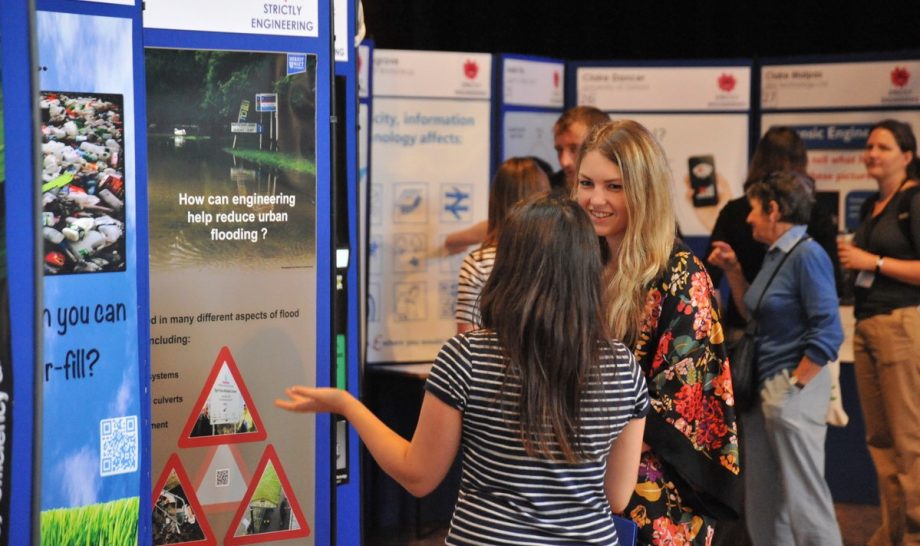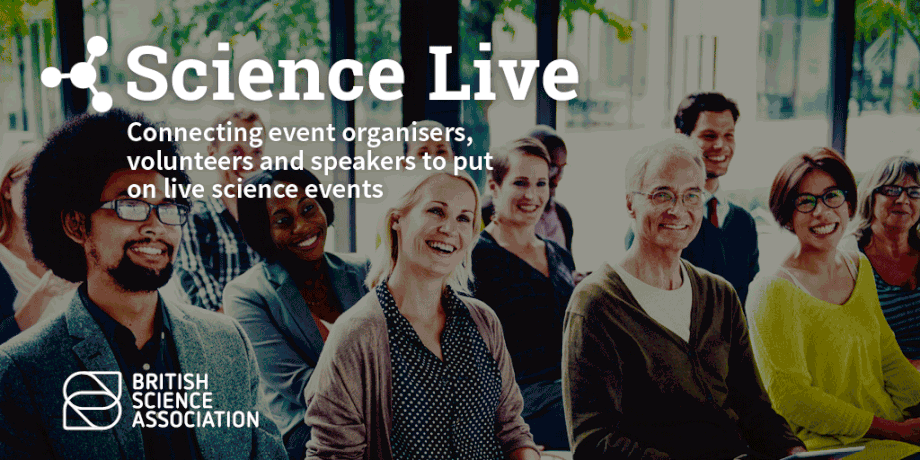British Science Week is a great opportunity for you to showcase your event to the media, and see the fantastic ways in which people are getting involved with science. If you’ve received a grant, it’s a great opportunity for the public to see how the grant is being used.
The below guide features a number of ways that you can use media to get people to attend your event, and spread the word in the local press using social media, print, media and more.
Don’t be scared! This won’t take up much time and with our handy tips you’ll have mastered it in no time…

Face to face
Tell your people about your event, what you are doing and how they can get involved. Ask them to spread the word. Contact local organisations and businesses who can help promote your project through their networks.
Leaflets and posters
Produce leaflets, posters or newsletters about your project. You can use our marketing materials as templates!
Display them as widely as possible in your area. Libraries, health centres and recreation centres are good places to choose so lots of people can see them.
Get social
Share your event on Twitter and Facebook!
Make sure you contain the hashtag #BSWXX (the XX will be the year, so 22 for 2022) on Twitter, and tag the ‘British Science Week’ Facebook page, then we can share your event and help you publicise it.
There’s no need to set up a Twitter account just for one event, but if the event location has a Twitter account, ask if they will promote your event with a few tweets or Facebook posts.
| Follow… | Like… |
| @BritSciAssoc | British Science Association |
Feature your event on Science Live
Science Live is the British Science Association’s event platform that enables people – whether as organisers, speakers, volunteers, or attendees – to connect with one another throughout the year. It’s the perfect place to promote your event and make it visible to the local community!

Tell the media
There are a number of ways you can engage the media both before and during your British Science Week event.
The best way of getting support from local media is by finding your local newspaper, community news channel or radio station, and speaking to someone from their newsrooms. Emailing is one way of getting in touch, but the best way for local media to understand everything about your event is through a chat either on the phone or in person.
You can invite them to your event or arrange a photo call with some of the people involved in your project, and ask if your event can be listed on their ‘What’s On’ page of the newspaper/magazine. Check out our easy guide on writing a photo call.
Sometimes local media are interested in the event, but are unable to bring a photographer for a number of reasons, so it is important to have someone who can send photos through to local media as soon as possible.
The average day for a reporter can change quickly. They may be called away to another story in the middle of your event, or they may not be able to make it in at all. In order to give your project the best possible chance of appearing in the local media, you need to have a spokesperson – someone who is available to speak about your event at a time that suits the reporters. For school groups, this should be one of the senior teachers or senior leaders of the school. For community groups, this should be left to the senior organisers. By making a spokesperson available, along with their contact details in the press release, you are showing reporters that you are being proactive and can work with them.
Remember: Get consent for photos
You need to get consent from people you would like to photograph or film, especially if you plan to use the images for publicity purposes – both in print and online, this includes your social media activity. Use this example of a photography permission slip.
Write a press release
A press release is a great way to send the message to local newspapers and publications. It involves writing a concise description of your event, highlighting the essential details about when the event is on. You should make it easy for people to read!
As mentioned earlier, it is important to have a spokesperson or a named contact and their details in the release. This allows reporters to call immediately and request information, and provides them with someone they can speak to on the day of the event.
Download our guide to writing a press release and sample template (opens as editable word document).